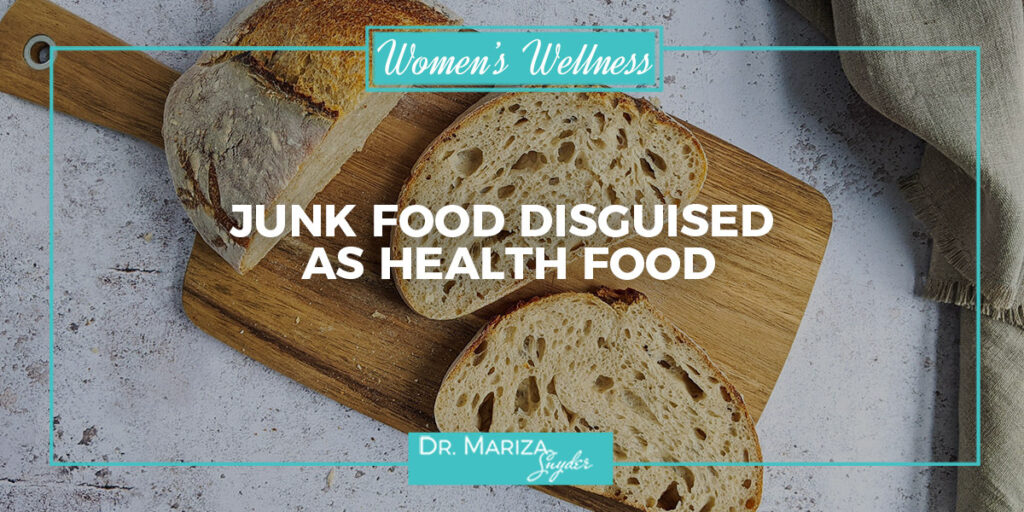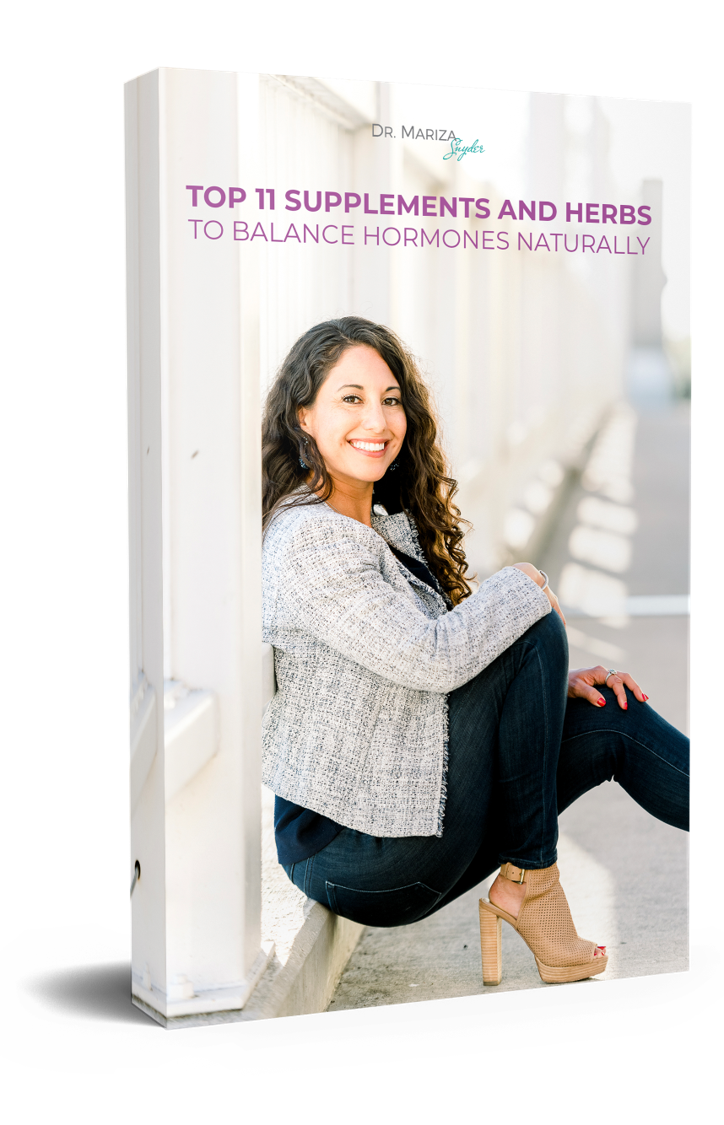The healthiest foods are easy to spot, right?
Or are they?
You try so hard to eat the right things, but then you may feel unsure if they fit the bill.
The reality is that there are some common “health” foods that you may enjoy, but they aren’t really that great for you.
So how can you tell the difference? How can you see through the hype and really get to the heart of what foods are really and truly good for you?
The thing to keep in mind is that marketing and even some false advertising can have a huge influence on what foods we actually think are healthy. There is an entire industry out there that is in the business of pushing “healthy foods.”
Just because they are packaged and promoted in that manner doesn’t necessarily mean that they are. It’s easy to get lost in a sea of seemingly healthy foods, and it can be frustrating to learn that some of them are worse for you than junk food.
It’s time to dig deeper and get into the heart of what foods may not be as healthy as you actually think.
Case in Point: My Blended Coffee Dilemma
I had a moment a month or so ago when I was wanting a coffee treat, but we were on the road. So I sent my husband Alex into Starbucks to grab me a blended coffee.
In my mind, I thought, “This is just coffee and ice — I’ll be totally fine.” (I even had him ask them if there was any sugar in it and he was assured there wasn’t.)
But I was SO wrong.
This drink that’s just advertised as coffee caused the BIGGEST blood sugar spike I’d experienced in the four months since I started wearing my CGM (continuous glucose monitor).
This is a very telling situation because up until that point, my blood sugar level seemed completely under control. Then suddenly things went in the completely wrong direction, and this made me realize the hard truths that I already knew deep down.
Yes, just one beverage can really mess things up. Now think of that on a daily or even weekly basis, and how one seemingly innocent treat can really negatively impact your health.
You can’t let your guard down about what’s going into your body—and you also can’t always trust the labels…
What’s the Problem with Health Foods Anyway?
First and foremost, just because something is advertised as “health” food doesn’t mean it is.
The reality is that there are no true mandates on how food can be advertised unless of course there is a medical claim or guarantee attached to it. There are very few regulations that dictate what comprises a “healthy” food, and so you have to go in recognizing that.
Just because it’s “gluten-free” doesn’t mean it’s healthy.
Gluten can cause so many health issues, and so it is often best to be avoided. This has become a solid health trend, and with good reasons—but it has led to a wide range of “gluten-free” foods that may seem like healthier alternatives at first glance.
The problem with this is that some of these foods use other ingredients to take the place of the gluten, many of which are just as bad as the gluten.
So sure, you may not be eating gluten, but you may find a list of chemicals that you can’t even pronounce, filler ingredients that pack a ton of void calories, and substances that actually work against better health.
This is where you have to learn to really read labels and understand what you are taking in.
Rules to Know if Your Eating Is Actually Healthy
Here are some helpful rules when it comes to focusing on eating healthy.
If you can keep these in mind and let them guide your food choices, you will be much better off for it:
1. You can pronounce (and recognize) all ingredients: Use this as a steadfast guideline because it works. When you look at a food label, you should absolutely recognize what is listed. If you don’t understand, can’t pronounce, or can’t easily identify what is contained within your food, then chances are it’s not a great option.
2. If the first ingredient is rice (like in most GF crackers, bread, pasta, etc.) it’s just as bad for most of us as the real thing: This is the perfect example of a good idea gone bad. While you may not be consuming something that is very obviously bad for you, the reality is that you are taking in far too much of a simple carbohydrate. This will result in a blood sugar spike, and then a crash a little while later on. This isn’t good for your hormones, your blood sugar levels, or your general health. Avoid food products that feature rice as the first listed ingredient—it’s just not worth it!
3. Ideally, just shop the outside of your grocery store (produce, meats, etc.) and avoid things that come in packages: Think of the layout of your local grocery store. The perimeter of the grocery store is where you will find fresh fruits and vegetables, lean protein, good fats, and all the right things to eat and enjoy. The inner aisles are where you will find a lot of processed foods and therefore the questionable choices. Try to focus your efforts on the outside perimeter of the store for the bulk of your shopping and you will be in good shape. Check out this podcast for my go-to shopping list that supports your hormones and overall health all year long.
4. Ask lots of questions! When you eat at a restaurant, order a coffee, etc., it’s your right to know what you’re getting. Don’t be afraid to question things or to ask for what you really want. This is a situation where you are in the driver’s seat, and you have to ask the questions and be forthcoming to get what you want and need for good healthy fuel.
Why Avoiding Certain Foods Is Best for Your Hormones
We tend to focus so much of our attention on losing weight, watching calories, or trying to be a better version of ourselves. Really, it’s the daily habits and choices that are going to make the biggest difference in your long-term health (and you’ll probably lose weight in the process, too).
With that in mind, there are certain foods that will help your hormones, while there are others that can hurt them. Here is a list of foods I recommend all women avoid because of the damage they can do to your hormones:
Gluten
- Gluten can cause inflammation within the body, which isn’t good for a variety of reasons. Inflammation can cause significant hormonal imbalance and contribute to problems moving forward. So avoiding gluten can help to lessen the likelihood of inflammation in the first place.
Dairy
- The problem with dairy is that it contains enzymes and hormones that disrupt your body’s balance, as well as contributing major inflammatory markers that interrupt your body’s natural rhythms.
Grains
- Grains can directly contribute to hormonal imbalances. Rice, oats, quinoa, and other common grains are often advertised as “healthy,” but they can spike your blood sugar just as much as a piece of white bread.
Red Meat
- The biggest problem with red meat is that it can actually increase the production of estrogen in your body. For most of us, we are already overburdened with too much estrogen, and this can compound the problem.
Eggs
- Eggs are another “health” food that actually drives increased inflammation for so many of us. While some are able to process free range organic eggs in moderation, it is often best to limit your consumption in order to feel your best.
Caffeine
- The big problem with caffeine is that it stimulates the stress hormone cortisol to be released. Caffeine also causes that unnatural spike in blood sugar and then that all too familiar fall when it wears off. I’m not saying you can never have coffee (I still usually have one cup per day), but watch what you put in it and monitor your body closely for signs of spikes/crashes or jitteriness.
Alcohol
- You probably know that alcohol isn’t good for you or your health. However when it comes to hormones specifically, alcohol can increase estrogen production while also decreasing progesterone production. This accelerates aging, causes more hot flashes, sleep disturbances, and stubborn weight, and can make perimenopause a much harder stage than it needs to be.
Supplements to Support Gut Healing
Healthy food choices are ALWAYS going to be the foundation of lifelong health. The great thing is that if you’re making some not-so-great choices, you CAN turn it around starting today!
After years of eating a certain way, your gut is bound to need some extra love and healing time as you transition to healthier choices. The standard American diet is FULL of inflammatory ingredients that drive hormone chaos, gut dysbiosis, and nutrient deficiencies.
Supplements are also a great tool to speed up the healing process and get your body back on track so you can get the most out of your healthy food switches.
Correcting nutrient deficiencies and supporting optimal gut health with supplements is a quick and easy way to give your body what it has been missing. Some of my favorites for women just beginning this journey (or who need a little kick to restart) include:
- Vitamin D Complete (vitamin D deficiency is SO common, and it’s a great tool to decrease body-wide inflammation)
- Magnesium Restore (essential for healthy digestion, hormone support, sleep, stress, and so much more)
- Gut Restore (to eliminate gut inflammation, support a healthy microbiome, optimize nutrient absorption so you actually get benefit from the foods you eat, and more!)
The Bottom Line
Eating for your health means focusing on the foods that will help you, rather than work against you. Instead of focusing on all the things you can’t have, imagine the delicious possibilities—that will leave you looking and feeling amazing after enjoying them!
I’ve curated some of my all-time favorite recipes into my Hormone-Balancing Recipes Guide. These recipes use all real, hormone-loving ingredients (nothing that will be hard to find), and they are EASY and quick to make any night of the week!
Click here to download your FREE copy today! >>
Get My Top 14 Hormone-Balancing Recipes!
Filling your body with the right fuels has an incredible impact on your hormones and energy. Download my free guide to the best hormone-balancing recipes here! Download Dr. Mariza’s Hormone Recipes Here
References:
1. https://pubmed.ncbi.nlm.nih.gov/31263254/



I’m curious if you recommend any specific Continuous Glucose Monitors or have any additional resources with info on using one. Any help would be appreciated! Thanks!
Hello! I recommend finding a good blood glucose monitor at your local store, or purchase one like this online https://amzn.to/3kein2V